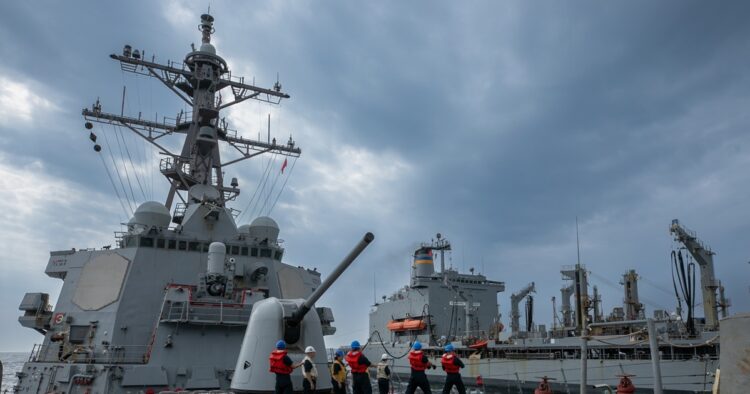The United States military has reported carrying out a self-defense strike against a surface-to-air missile in Yemen on Friday, citing an imminent threat to US aircraft in the Red Sea region. According to the US Central Command, the missile was set to be launched from areas controlled by the Iranian-backed Houthi rebels towards the Red Sea. The strike occurred at approximately 12:40 pm local time in Sanaa, Yemen. The military emphasized that the action was taken in response to the perceived threat posed by the missile.
In a statement released by the US Central Command, it was clarified that the strike targeted one Iranian-backed Houthi surface-to-air missile, which was identified as posing a direct danger to US aircraft operating in the region. Additionally, it was revealed that the Houthis launched an anti-ship ballistic missile from Yemen into the Red Sea later the same day, though no damage to vessels was reported as a result of this launch.
The recent strikes come amidst escalating tensions in the region, with Houthi fighters having conducted attacks on both commercial and military shipping since November. Initially expressing intentions to target Israel-linked ships in solidarity with Palestinians in Gaza, the Houthis later expanded their targets to include vessels associated with the United Kingdom and the United States.
Earlier in the week, US Central Command announced the interception and destruction of five Iranian-backed Houthi unmanned aerial vehicles (UAVs) in the Red Sea. Furthermore, recent joint strikes conducted by US and UK forces, with support from other nations, targeted 18 Houthi-controlled sites in Yemen. The goal of these operations, as stated by the US Central Command, is to defend US interests and those of its allies in the region, while also restoring freedom of navigation in the Red Sea and surrounding waterways.
The insecurity in the Red Sea has prompted major shipping lines to reroute their vessels away from the critical trade route, opting for longer journeys around Africa instead. This shift has led to increased costs and concerns about global inflation. Moreover, Egypt has suffered a loss of vital revenue from ships using the Suez Canal for Red Sea transit. These developments underscore the significant economic and geopolitical implications of the ongoing conflict in Yemen and its impact on maritime trade routes.

















Comments